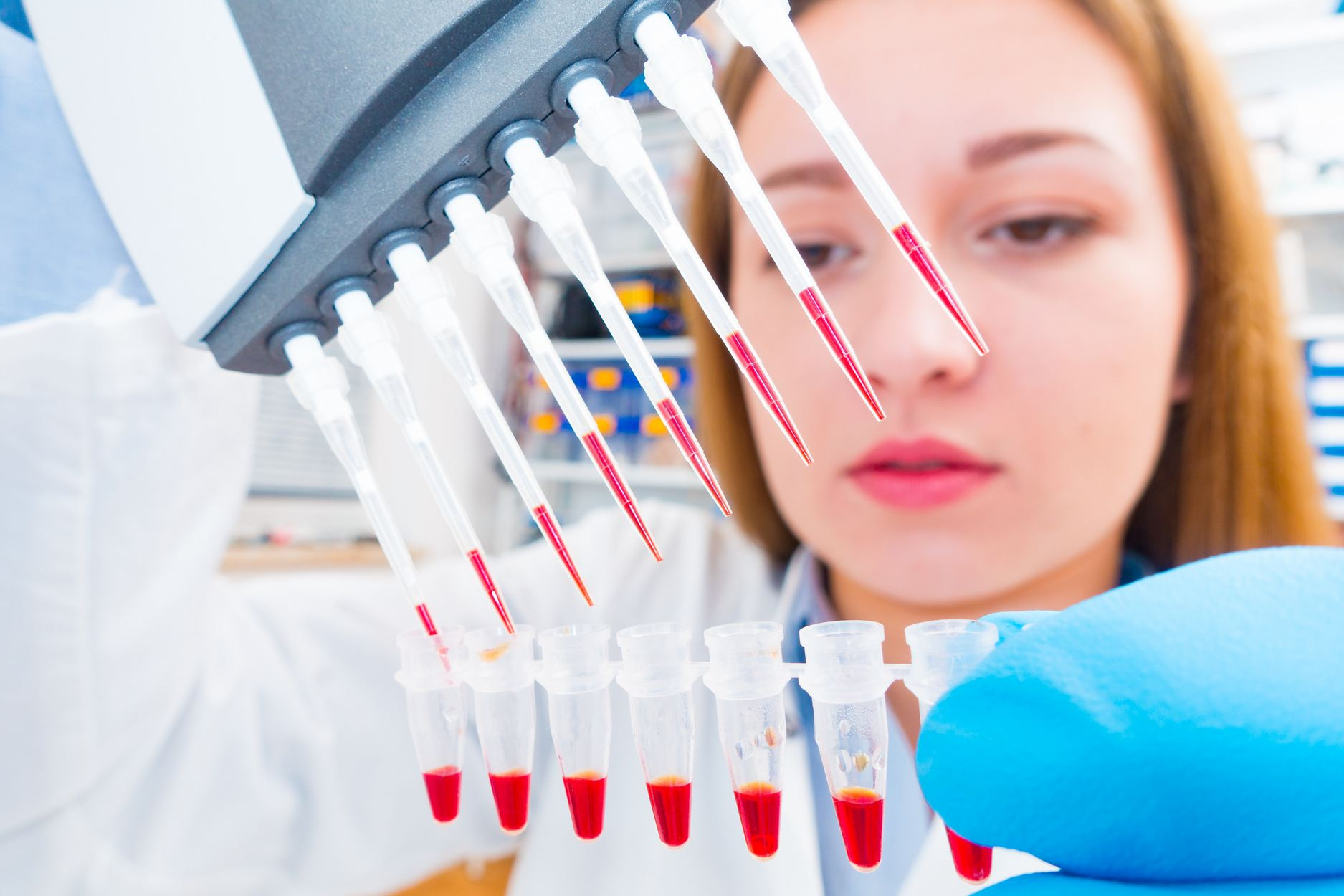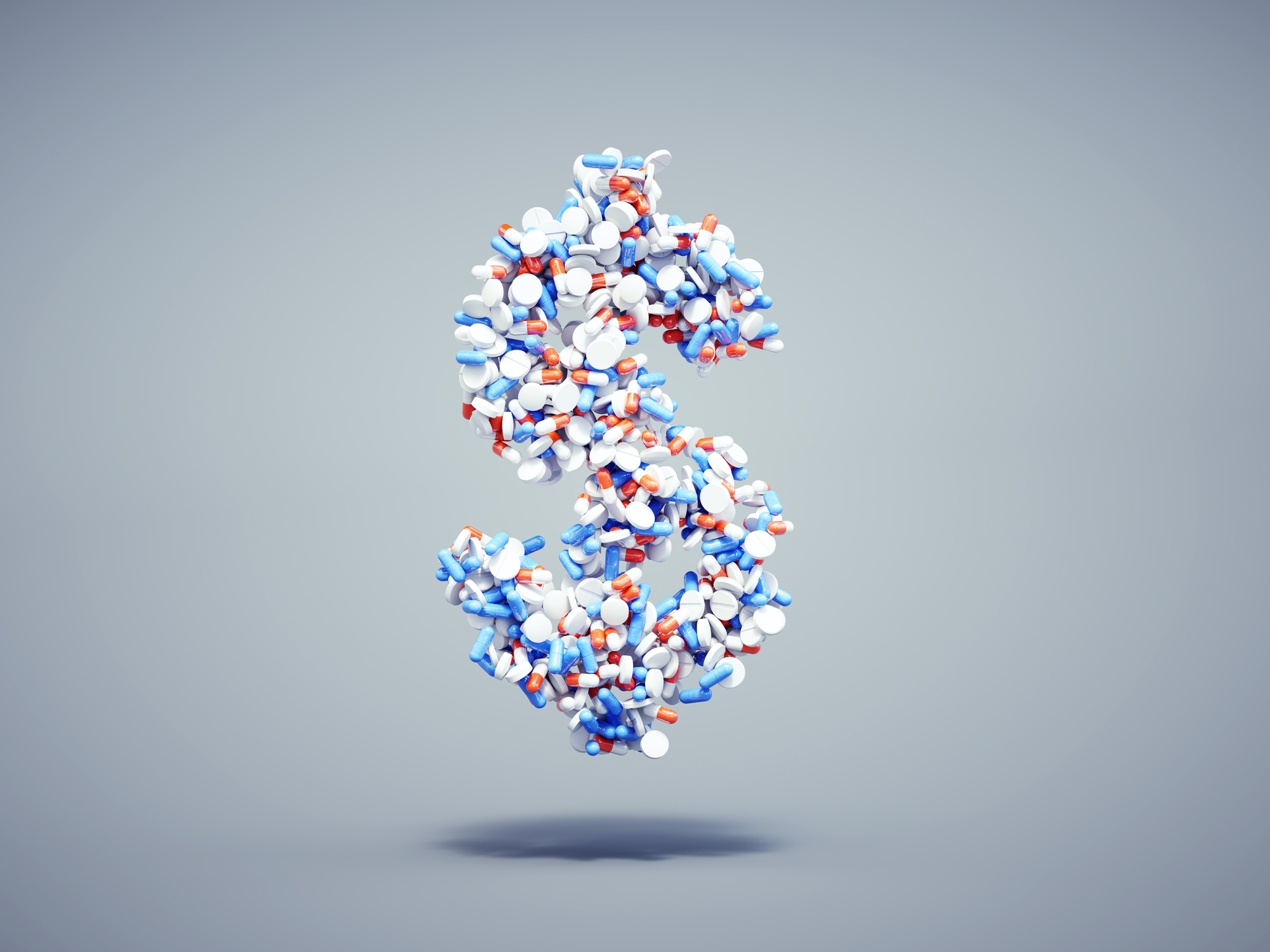Similar yet different. You can probably think of several things that meet this description. Butter and margarine. Jaguars and panthers. Jam and jelly. And, for those interested in the prescription drug industry, biotech and pharma.
Some use the terms biotech and pharma interchangeably. However, they’re not exactly the same. The difference between biotech and pharma is that biotech companies make medicines from living organisms called biologics, while pharma (pharmaceutical) companies develop drugs from chemicals.

There are even different regulatory paths for biotech and pharma products in the U.S. Companies that develop therapies made from living organisms must file a Biologics License Application (BLA) to obtain approval from the U.S. Food and Drug Administration (FDA). Companies that develop traditional medicines file a New Drug Application (NDA) to try to secure FDA approval.
Examples of biotech companies
The COVID-19 pandemic brought several biotech companies into the limelight. Moderna (MRNA +1.04%) and Regeneron Pharmaceuticals (REGN +1.96%) especially stand out.
Moderna developed the COVID-19 vaccine mRNA-1273 (later marketed under the brand name Spikevax). This vaccine uses messenger RNA (mRNA) to cause the body to produce proteins that are identical to the spike protein found on the surface of the novel coronavirus SARS-CoV-2. The body then produces antibodies that can fight the coronavirus.
Regeneron’s name might indicate that it’s a pharmaceutical company. However, Regeneron actually meets the definition of a biotech.
The company became practically a household name when its monoclonal antibody COVID-19 therapy REGEN-COV2 was used to treat President Donald Trump in 2020 during his first presidential term. Monoclonal antibodies are clones of a single antibody that are made in labs. In the case of REGEN-COV2, the antibody cloned is one that fights the coronavirus that causes COVID-19.
Regeneron also has several other approved monoclonal antibody therapies. The company partners with Sanofi (SNY +1.79%) to market Dupixent for treating diseases including asthma and atopic dermatitis, Kevzara for treating rheumatoid arthritis, and Praluent for treating high cholesterol and reducing the risk of cardiovascular disease. Regeneron purchased Sanofi’s stake in another monoclonal antibody therapy that the companies co-marketed, cancer immunotherapy Libtayo.
Other monoclonal antibodies in Regeneron’s product lineup include cholesterol drug Evkeeza and Zaire ebolavirus treatment Inmazeb. The company also co-markets the eye disease drug Eylea with Bayer (BAYR.Y +0.68%). Eylea isn’t a monoclonal antibody, but it is a biologic.
Examples of pharma companies
The phrase “big pharma” is often used to describe large pharmaceutical companies. Johnson & Johnson (JNJ +0.62%) and Pfizer (PFE +3.10%) rank as two of the largest of today’s big pharma companies.
Johnson & Johnson doesn’t just focus on pharmaceuticals. The healthcare giant also has a multibillion-dollar medical device business. However, J&J’s biggest moneymaker is its pharmaceutical segment.
The company’s top-selling pharmaceutical products include autoimmune disease drugs Stelara and Tremfya, blood cancer drugs Darzalex and Erleada, and antipsychotic drug Invega Trinza/Trevicta. Johnson & Johnson’s product lineup features a long list of other drugs as well.
Pfizer is probably best known now for its COVID-19 vaccine Comirnaty and oral therapy Paxlovid. But the company has several other blockbuster products. Its Prevnar family stands out as a leader in the pneumococcal vaccine market. The company’s top cancer drugs include Ibrance and Xtandi. Pfizer co-markets blood thinner Eliquis with another big pharma company, Bristol Myers Squibb (BMY +2.44%). And Pfizer’s Vyndaqel/Vyndamax is an enormously successful treatment for a rare type of heart disease.
Factor | Biotech | Pharma |
|---|---|---|
Type of therapy made | Medicines made from living organisms (called biologics). | Medicines made from chemicals. |
Regulatory approval process | Must file a Biologics License Application (BLA) to obtain approval from the U.S. FDA. | Must file a New Drug Application (NDA) to obtain approval from the U.S. FDA. |
Size | Can be any size, but many small drugmakers are categorized as biotech companies. | Can be any size but are often large drugmakers. |
Considerations for investors
- Big pharma stocks, such as Johnson & Johnson and Pfizer, typically will be less volatile than smaller biotech stocks, primarily because of the larger companies’ size and financial strength.
- However, large biotech companies will often be less risky than a smaller pharmaceutical company that develops traditional medicines that aren’t made from living organisms.
- With the opportunities for mRNA, monoclonal antibodies, gene editing, and other technologies, it’s likely there will be more biopharma companies in the future than pure biotechs or pharmas.
- Investors are better off focusing on the long-term prospects for the individual companies, regardless of whether their therapies are biologics or traditional drugs.
- Evaluate the management teams, markets for targeted diseases, clinical results of pipeline candidates, and the financial positions of the companies.
- In the end, what really matters is what your potential return could be relative to the risk that you take on.
Related investing topics
The future of biotech and pharmaceuticals
Several trends will likely shape the future of biotech and pharmaceuticals, including:
- Personalized medicine. Biotech and pharmaceutical companies will increasingly focus in the future on developing therapies that are tailored for individuals based on their genetics and lifestyles.
- Gene editing and gene therapy. Approaches such as CRISPR (clustered regularly interspaced short palindromic repeats) gene editing offer the promise to modify DNA to cure genetic diseases.
- Artificial intelligence (AI). Some biotech and pharmaceutical companies are already using AI to discover new drugs. In the future, AI will likely be used much more heavily in predicting how potential medications will interact with the human body.
- Quantum computing. In conjunction with AI, quantum computing could transform drug discovery with its ability to simulate complex biological interactions.

















